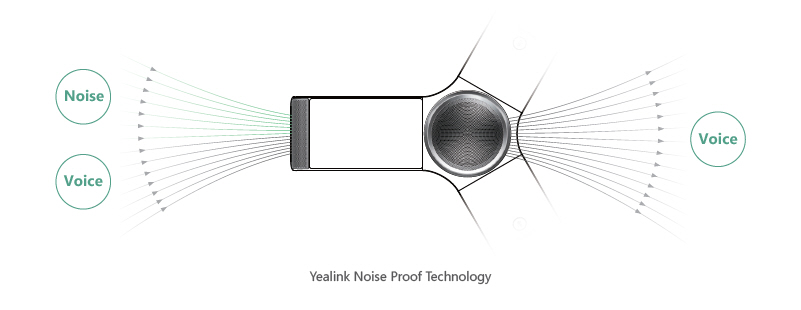Introduction
In today’s fast-paced digital world, businesses are continuously on the lookout for solutions that not only enhance efficiency but also contribute positively to the environment. One such solution that has gained immense popularity is the VoIP Phone System. With its ability to provide seamless communication over the internet, this technology not only offers cost savings and flexibility but also supports sustainability efforts. This article delves into The Environmental Benefits of Using a Cloud-Based VoIP Phone System, exploring how it can revolutionize business communication while promoting eco-friendly practices.

Understanding VoIP Phone Systems
What Is VoIP?
Voice over Internet Protocol (VoIP) is a technology that allows users to make voice calls using a broadband internet connection instead of traditional telephone lines. It converts voice into digital signals, enabling communication over various devices like computers, smartphones, and dedicated VoIP phones.

How Do VoIP Phone Systems Work?
VoIP systems work by transmitting voice data packets over the internet. When you speak into a microphone, your voice is converted into data, compressed, and sent through the internet to the receiver's device. This process occurs in real-time, providing an experience similar to traditional phone calls without the extensive infrastructure.
Types of VoIP Phone Systems
Cloud-Based VoIP- Hosted in the cloud. Requires minimal on-premises equipment. Scalable and flexible.
- Requires physical servers at your location. Involves higher upfront costs. More control over management.
- Combines both cloud-based and on-premises features. Offers flexibility based on specific organizational needs.
Each type has its unique advantages; however, cloud-based solutions are increasingly favored for their environmental benefits.
The Environmental Benefits of Using a Cloud-Based VoIP Phone System
Cloud-based VoIP systems are leading the charge in reducing environmental impact due to their innovative use of technology and resources.
Reduced Carbon Footprint
One major advantage of adopting a cloud-based VoIP Phone System is its reduced carbon footprint. By utilizing existing internet infrastructure instead of traditional copper phone lines, businesses can significantly lower their energy consumption and associated emissions.
Energy Efficiency
- Lower Power Consumption: Traditional phone systems require dedicated hardware that consumes considerable energy. Optimized Data Centers: Cloud providers often optimize their data centers for energy efficiency, employing strategies such as virtualization and renewable energy sources.
Decreased Hardware Waste
Utilizing cloud-based solutions means less reliance on physical hardware:
- Reduced need for bulky PBX systems translates into less electronic waste. Businesses can transition to using lightweight devices like softphones or mobile apps.
Sustainable Communication Practices
Cloud-based VoIP encourages sustainable communication practices within organizations:
- Employees can work remotely, minimizing commuting-related emissions. Virtual meetings replace travel for conferences or client meetings, saving fuel and reducing greenhouse gas emissions.
Cost Savings Through Sustainability
Economic Advantages of Switching to VoIP
Not only do organizations benefit from environmental advantages when adopting a cloud-based VoIP Phone System, but they also enjoy significant cost savings:
Reduced Call Costs
- Local and international calls are cheaper than traditional telecom services.
Lower Maintenance Expenses
- No need for extensive maintenance contracts with telecommunication providers—cloud providers handle this seamlessly.
Scalability Without Costly Upgrades
- Adding new users or features is simple and cost-effective compared to traditional systems requiring expensive hardware upgrades.
Enhanced Remote Work Capabilities
The Rise of Remote Work Culture
The COVID-19 pandemic accelerated remote working trends across various sectors. As more businesses embrace flexible work arrangements, cloud-based VoIP systems provide essential tools to maintain productivity while being environmentally conscious:
- Employees can take calls from anywhere with an internet connection. Seamless collaboration tools integrated within many VoIP platforms encourage teamwork without geographical constraints.
Supporting Work-Life Balance
Promoting remote work not only benefits employees but also reduces office space requirements—contributing further to sustainability initiatives:
- Less office space means lower energy consumption for heating/cooling and lighting. Fewer resources used in maintaining physical offices lead to decreased waste generation.
Improved Disaster Recovery Plans
Resilience Through Cloud Technology
Natural disasters and unforeseen incidents can disrupt business operations severely. A well-configured cloud-based VoIP Phone System enhances resilience by allowing companies to maintain operations even during crises:
Data Redundancy
- Information stored in multiple locations ensures quick recovery post-disaster.
Remote Access Capabilities
- Employees can access communications from any location if they have internet connectivity—ensuring continuity regardless of circumstances.
Mitigating Environmental Impact During Crises
By shifting operations online during emergencies (e.g., natural disasters), organizations minimize their carbon footprints while ensuring safety:
- Less reliance on transportation for employees leads to lowered emissions during critical situations.
Conclusion: Embracing Eco-Friendly Communication Solutions
In conclusion, adopting a cloud-based VoIP phone system presents myriad environmental benefits alongside economic advantages for businesses striving towards sustainability goals. By reducing carbon footprints, minimizing hardware waste, supporting remote work cultures, enhancing disaster recovery plans, and offering substantial cost savings—the case for transitioning becomes compellingly clear.

As we move towards an increasingly digital future, embracing innovative technologies like cloud-based VoIP isn't just beneficial; it's imperative—for our businesses, our communities, and our planet!
FAQ Section
1. What is a Cloud-Based VoIP Phone System?
A Cloud-Based VoIP Phone System allows users to make voice calls via the internet rather than traditional phone lines by utilizing hosted software provided by third-party vendors operating data centers globally.
2. How does using a Cloud-Based VoIP help reduce waste?
By minimizing reliance on physical hardware such as PBXs or separate telecommunication devices—which generate e-waste—organizations help lessen electronic waste in landfills when opting for more sustainable communications methods like softphones or mobile applications integrated into their workflows.
3. Can remote work influence my company's carbon footprint?
Absolutely! Encouraging remote work reduces commuting emissions significantly while decreasing overall energy usage typically required at centralized office locations—making it an integral part of any organization's sustainability strategy!
4. Are there any hidden costs associated with switching from traditional telecoms?
Most initial investments stem from setting up necessary software licenses or training staff—but these costs tend to be outweighed by long-term savings related directly back towards reduced call rates/maintenance fees compared against legacy systems!
5. Is technical support available with Cloud-Based VoIPs?
Most reputable providers offer round-the-clock customer service ensuring smooth operation across all platforms; troubleshooting issues quickly without downtime impacts resulting from technological hiccups negatively affecting productivity levels!
6. What measures ensure security within these platforms?
Leading vendors implement advanced encryption protocols safeguarding sensitive information transmitted over networks while also performing regular audits guaranteeing compliance with stringent regulatory standards protecting user data privacy accordingly!
In sum: Transitioning toward eco-friendly solutions such as Cloud-Based Voice over Internet Protocol represents not just an evolution in business communication—but rather a revolutionary step forward toward building sustainable futures collectively!